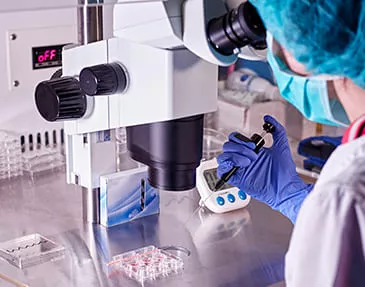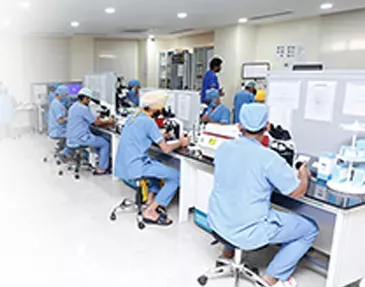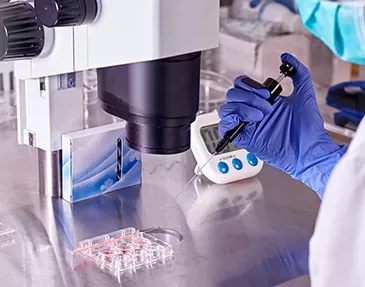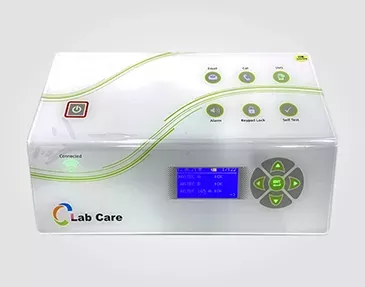What Causes Infertility in Men?
Male infertility can arise from various underlying causes. Hormonal imbalances, including low testosterone levels, can disrupt sperm production and function. Structural abnormalities, such as blockages in the reproductive system or varicoceles, can impede the transport of sperm. Genetic disorders, such as Klinefelter syndrome, can affect sperm production or quality. Infections, such as sexually transmitted infections or reproductive tract infections, can damage sperm or block sperm passage. Lifestyle factors like smoking, excessive alcohol consumption, drug use, exposure to toxins, and obesity can also contribute to infertility in men. Certain medical conditions, including diabetes, hypertension, and autoimmune disorders, may affect fertility as well.
Visit our IVF Centre in Panipokhari, Kathmandu today!
Indira IVF, 3rd Floor, Adjacent to Global IME Bank, IME Complex, Panipokhari, Kathmandu-03, Nepal - 44600

Meet our Fertility Experts

Dr. Neha Homagai
Chief Infertility Specialist, MD (OB/GYN) & MBBS
Dr. Neha Homagai is a Nepal Medical Council-Registered IVF Specialist. Dr. Neha is also a Chief Infertility Specialist at Indira IVF Centre in Kathmandu and brings unparalleled expertise in assisted reproductive technology, empowering couples to overcome infertility challenges. With compassion and extensive experience, she has become a trusted name in the field, offering unwavering support and hope to couples on their transformative journey to parenthood.

Dr. Manisha Acharya
IVF Specialist, MS (OB/GYN) & MBBS
Dr. Manisha Acharya is widely recognised for her profound knowledge and outstanding skills in assisted reproductive techniques. She provides exceptional care to couples struggling with infertility, guiding them towards successful outcomes. Her dedication and success rate have positioned her as one of the top fertility specialists at Indira IVF, where she continues to make significant impact in patient’s fertility journey.

Dr. Jyoti Shrestha
IVF Specialist, MS (OB/GYN) & MBBS
Dr. Jyoti Shrestha is a trusted fertility specialist with over 5 years of experience. She specializes in IVF and IUI procedures, hysteroscopic surgeries, and PCOS treatment. She has helped many couples overcome recurrent pregnancy loss and achieve their parenthood dreams. Known for her expertise and compassionate care, Dr. Shrestha remains dedicated to making a positive difference in her patients’ lives.
Nepal Clinic
What are Common Male Infertility Problems?

Low Sperm Count
Insufficient quantity of sperm in the semen, which can affect fertility.

Poor Sperm Motility
Reduced ability of sperm to move and reach the egg for fertilization.

Abnormal Sperm Morphology
Irregular shape and structure of sperm, impacting their ability to fertilize an egg.
General Symptoms of Male Infertility
Male infertility may not always present noticeable symptoms. However, some signs may indicate an underlying issue. These include difficulty achieving or maintaining an erection, problems with ejaculation, decreased sexual desire or libido, pain or swelling in the testicles, abnormal semen volume, consistency, or colour. Hormonal imbalances may manifest as changes in hair growth, reduced muscle mass, or breast enlargement. It's important to note that experiencing these symptoms does not necessarily confirm male infertility, as further medical evaluation and a diagnostic male fertility test are required to determine the cause. Consulting a fertility specialist can help identify and address potential fertility concerns.
Male Infertility Diagnosis
Male infertility diagnosis involves a comprehensive assessment of medical history, physical examination, and specialized tests. Semen analysis is a fundamental test to evaluate sperm count, motility, and morphology. Additional evaluations may include hormone testing, genetic screening, imaging studies, and testicular biopsy. Accurate diagnosis enables tailored treatment strategies for couples facing fertility challenges. Some of the common Male Infertility Tests are:
- 1. Semen analysis: Assessing sperm count, motility, and morphology.
- 2. Sperm DNA Fragmentation Index: Evaluating DNA integrity within sperm.
- 3. Post-Ejaculation Urinalysis: Examining urine after ejaculation for retrograde ejaculation.
- 4. Physical examination: Assessing the reproductive organs for abnormalities.
- 5. Analysis of medical history: Reviewing medical conditions, medications, and lifestyle factors.
Why Choose Indira IVF for Male Infertility Treatment?

Comprehensive Male Infertility Care
Offering a wide range of advanced treatments and services specifically designed to address male infertility concerns effectively.

Experienced and Skilled Specialists in Male Infertility
Access to highly trained fertility experts specializing in diagnosing and treating male infertility with years of experience.

State-of-the-Art Facilities for Male Infertility
Equipped with modern technologies and advanced laboratory services to ensure accurate diagnosis and optimal treatment outcomes for male infertility.
Advanced Fertility Treatments with State-of-the-Art Technology

World-class laboratories

Closed Working Chambers Technology

Non-Invasive Preimplantation Genetic Testing (NIPGTA)

Advanced Incubators

Microfluidic Sperm Sorter Technique

















